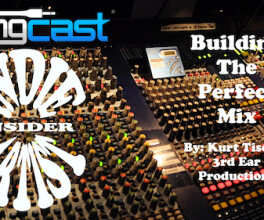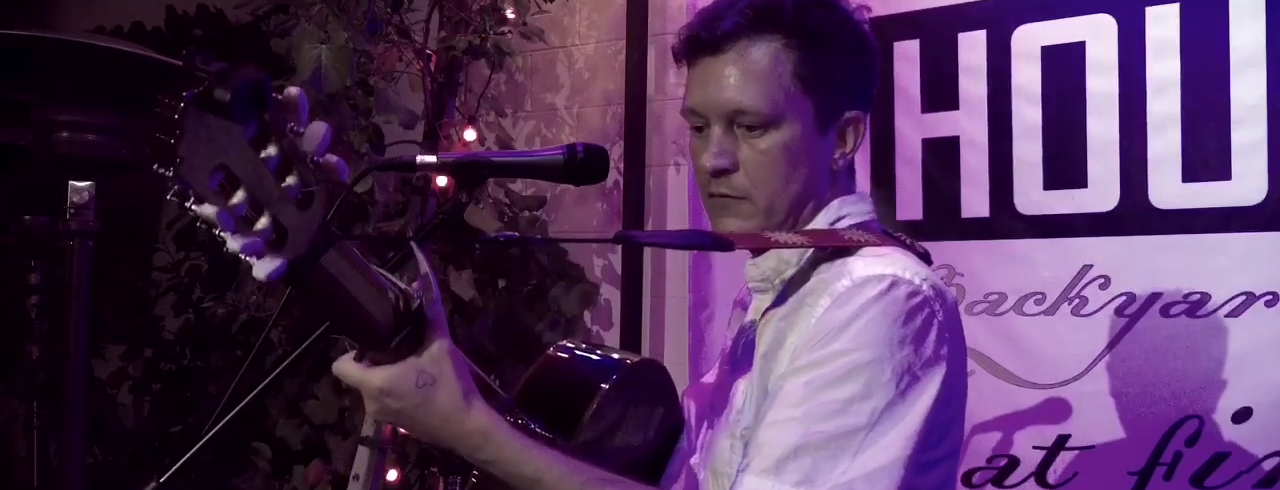This is the second week in a row that I shatter the illusion that I create these columns in a sealed, hyperbaric chamber occupied only by my thoughts and a writing device. When I got the gig writing for SongCast, I hadn’t been regularly performing. I’d actually written a few blog posts about the lack of desire to perform. And for several months of writing a column about music — though I continued to play music — I didn’t perform. That changed recently and offered me the opportunity to reflect on what playing a show means to me these days.
Nagging circumstances
I should start with two influences that got me to play a show. The first is this writing gig itself. Since I began contributing to SongCast, I felt like I couldn’t go too long without playing a show. I didn’t want to be a poseur full of advice that I don’t have to heed myself and I didn’t want to be a critic, opining on an art in which I don’t participate.
The second nags were friends. My friend Boris got me to play an open mic for no other reason than to demonstrate him what kind of music I’d been experimenting with lately. My friend Allen also persisted in his invitations to play a songwriter night he hosts. I declined once or twice before realizing that one more “no” and I’d probably never be invited again.
A clarification: I don’t really consider open mics to be “performances.” They’re more like open rehearsals. I like to use them to try out new material. So when I say, “I played a show,” that’s not it. It’s just that without Boris getting me to play the open mic, I’d have been even farther away from accepting Allen’s invite.
Preparation
I used to rehearse pretty relentlessly which is weird to even think about because that wouldn’t seem to be in my character. Like, I don’t want to give you the impression that I’m a musician’s musician kinda guy. I don’t have any visible discipline, but for several years, I really enjoyed being a solo performer and I had a sort of mania for rehearsing.
I had a set of songs that I practiced enough that I could pretty much perform them any time. I would run through that a few times each week and also free associate other songs that might fit such a set. The result was a catalog of twenty to thirty songs I felt comfortable breaking out anywhere.
That all faded out two years ago. I had stopped writing new songs and been worn out from outside circumstances. Playing shows wasn’t fun. Then I transitioned from playing my steel string acoustic to playing my nylon string. So I simply lost the sound, style, and preparation I had built up.
But a whole bunch of wood-shedding on my Spanish guitar as well as a serious DGAF attitude gave me — I don’t want to say “confidence” because it’s not that — security in the idea that I could play a set’s worth of material in front of people again.
Allen offered me a spot on his songwriters’ night about a month in advance. I started practicing a set in earnest in the two weeks before the show. Unfortunately, job stuff got in the way as it always does. Long hours prevented me from dedicating a lot of time to getting comfortable with a set and then adding on. I aimed for ten songs, auditioned twenty, and threw half away. The rule being: what I’m not comfortable with, I discard.
Nerves
I didn’t feel especially nervous on the night of the show, just weak, which is how anxiety often manifests itself in me. A lack of sleep and a general unease made me feel ragged. Before my set, I literally wrote down the first line of each verse to the songs in my set list so if I felt lost, I had a crib sheet. It turned out I didn’t need it. But only just, I think. Any less sleep and my memory would have been useless.
Chatter
Over the years of being a solo performer, I tried to develop stage banter that conveyed that my songs weren’t inscrutable, serious affairs even if they were sung in a deadpan tone that didn’t draw attention to funny lyrics. However, that rap never really works for me except around people I know. It just sounds sarcastic. I’d decided not to do it at the show. I’d tried it at the open mic a few weeks earlier and felt it didn’t land. For my show, I was just going to shut up and say only the names the songs and possibly their original author if it wasn’t me. I didn’t entirely succeed at shutting up. But I got closer.
Songs
If I were to start picking apart all the nuances of a show or think that I’m supposed bring some Katy Perry-sized entertainment to a small stage, I’d go crazy. I’ve learned to judge my own performances on two criteria: did I remember the words and did I hit the notes. The judgement for this show was yes and mostly.
Improvisation
Not that I “jammed” during the performance but I did improvise in my set list when Allen told me to do two more songs. I broke out a two song medley that I’d originally auditioned for the set and discarded because I didn’t feel completely confident in it. Result: it flopped. Lesson learned: if it feels bad in rehearsal, leave it.
In summary
The parts of my set in which I felt the least successful were the parts I’d told myself not to do: banter and improv. That’s not a cause for disappointment. In fact, it’s affirming. It tells me that the instincts I have when not on stage are positive and I should follow them even in moments when my judgement is impaired (as all judgement is when one is presented a microphone and stage).
My musical instincts succeeded. I played my Spanish guitar in the style I’ve been developing: somber in moments, brighter in others. I reworked older, poppier material for the nylon sound. I sung well. I composed my set in a way that assured newer or less-tested songs were preceded and followed by qualified songs.
For too many years, I hoped that somewhere, at some show, I’d find that audience who “got it” and that would snowball into a following and some measure of “success.” But I’m over that. I think that’s largely a case of letting other people’s metrics measure your success. What I see when I set my own metrics is that my measurements are inline with my instincts. I’m successful. Even it no one knows it.












































Comments
No comment